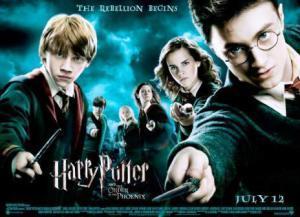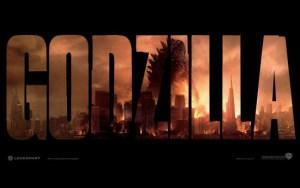Over the weekend, Dawn of the Planet of the Apes posted one of the best second-weekend holds of the summer, The Purge: Anarchy did better than it had any right to, and Planes: Fire & Rescue and Sex Tape swung and missed big. Overall, the summer box office malaise continued, with the cumulative gross from this weekend’s top 12 falling 26% below the total from last year’s comparable weekend.
However, what does any of that mean? Do box office totals really even matter, or at least matter as much we pretend they do by pouring over the weekend top 10 through sites like BoxOfficeMojo which effectively deputize all of us (myself included) as armchair economists?
I was struck by these questions when I recently picked up Edward Jay Epstein’s The Hollywood Economist 2.0: The Hidden Financial Reality Behind the Movies (2012), a book whose opening chapter is entirely devoted to weaning us off our slavish devotion to box office figures. Epstein, an investigative journalist with a Ph.D (in government) and teaching experience at Harvard, UCLA, and MIT, points out (using the most recent total data available to him at the time of his writing):
At best, box office sales represent gross income from theater chains’ ticket sales. These chains eventually rebate about 50% of the sales to a distributor, which also deducts its outlay for prints and advertising (P&A). In 2007, P&A averaged about $40 million per title-more than was typically received from American theaters for a film in that year. The distributor also deducts a distribution fee, usually between 15 and 33% of the total theater receipts. Therefore, no matter how well a movie appears to fare in the box office race reported by the media it is usually in the red at that point.
So, how do most movies really make money for the studio?
In 2007, the major studios had combined revenues of $42.3 billion, of which about one-tenth came from American theaters; the rest came from the so-called backend, which includes DVD sales, multi-picture output deals with foreign distributors, pay-TV, and network-television licensing.
He points out that it is due to this reality that you have something like New Line Cinema making so much money from the three Lord of the Rings films from 2001-2003 but declaring bankruptcy just 5 years later, ultimately forced to sell to Warner Bros. They made too many bad output deals, most specifically on The Golden Compass (2007), whose international rights they sold off and thus completely missed out on a share of its $302 million overseas gross.
In actuality, the only way to know how well a movie does is to wait at least a full year until after it debuts in theaters, at which point you might (if you’re a legit reporter with industry contacts, like Epstein) be able to get a copy of the studio’s official distribution report which details how much was spent on P&A, the specifics of the distribution deals, and real revenue from worldwide theatrical, DVD, television, and licensing income. You’ll usually be surprised by what you find. For example, the official distribution report for Harry Potter & The Order of the Phoenix reveals that although it grossed $939 million worldwide Warner Bros. actually took a loss on the film after its theatrical run (thanks in some part to clever Hollywood accounting.)

This made nearly $1 billion worldwide and still officially failed to turn a profit for the studio
Wait, what? Let’s break it down: of that $939 million in worldwide ticket sales, Warner Bros. only received $459.3 million, which was instantly cut down to $276.7 million after deducing the $182.6 million the studio had already spent on things like ads, taxes, dubbing, and shipping. However, WB still had to pay out an additional $316 million to cover negative costs, such as the money paid for the book, scripts, producers, director, and actors as well as the money owed to the many gross participants (J.K. Rowling is due her piece of the pie). As such, Order of the Phoenix, a movie which took in nearly $1 billion worldwide, technically failed to break even, leaving WB nearly $40 million in the hole. Any profit it made came from home video and TV licensing.
While that all may be the fiscal reality of how Hollywood operates it seems as if perception is the primary currency of the day. For example, DreamWorks Animation may yet turn a profit from How to Train Your Dragon 2 due to ancillary sales down the line, but its stock price already plummeted 11% less than 24 hours after its opening weekend as Wall Street lost its shit over how far below-expectations the film had performed. Something like The Amazing Spider-Man 2 is considered a failure due to hitting franchise lows in domestic and worldwide gross whereas X-Men: Days of Future Past is a rousing success even though it cost just as much to make and didn’t post a remarkably better worldwide gross ($702 million for ASM2 vs. $736 million for X-Men).

Godzilla is one of the pleasant surprises of the summer, but it opened with nearly $100 million across 3 days and has yet to equal that total in the entire 9 weeks since then
As argued in Marketing to Moviegoers, “Box office is increasingly front-loaded, with around half of a big major-studio film’s gross now coming from the opening week, versus just 20% in 1990.” So, there was a time when films could grow somewhat more organically, but in the age of the internet movies simply cannot combat the one thing no amount of advertising can erase: bad word-of-mouth. So, everything is geared toward securing that opening weekend, both for bragging rights and getting as strong a start as possible since a film’s box office is merely a springboard for how much it can collect out of pay television and home video.
Clearly, box office totals matter. Even if they ultimately represent just 1/10th of Hollywood’s bottom line they are still the opening argument in an on-going case of “How much will you pay me for the right to air this film on your channel? How much will audiences want to buy this on Blu-Ray/DVD/VOD? How do I keep fostering good relationships with foreign distributors?” Plus, a film like Order of the Phoenix having technically lost money is not so much a condemnation of misleading box office figures as it is a testament to just how easily the numbers can be massaged by clever Hollywood accountants whose job it often is to help the studios wiggle out of paying out to anyone with back-end profit participation deals.
Ultimately, the perception is more important here because although something like Waterworld actually turned a decent profit due to strong international biz and home video we still think of it as one of the biggest bombs of all time, forever damaging Kevin Costner’s status as a bankable star (The Postman didn’t help with that). Or, to keep it more current, from a spreadsheet point-of-view The Amazing Spider-Man 2 would seem like a profitable venture for Sony, but now because its franchise-low box office totals correspond with its franchise-worst reviews Sony may be completely re-thinking its multi-faceted plans for sequels and spin-offs. We may not really know how good a big movie is really doing or how severely an apparent flop is bombing, but we think we do and that colors Hollywood’s ability to get us to come back for a sequel or similar film.
Here’s the latest Box Office Top 10:
Top 10 Actual Domestic Totals (7/18-7/20)
1. Dawn of the Planet of the Apes

- Weekend Gross=$36.2 million
- Total Gross to Date=$139.2 million
- Budget=$170 million
Foreign: $61 million from 50 territories this weekend, expanding greatly into Europe/South America post-World Cup, for a total international haul of $103 million and worldwide total of $242 million
Most of the summer’s blockbusters (Amazing Spider-Man 2, Days of Future Past, Transformers, Godzilla) which have opened big have dropped over 60% in their second weekends. Maleficent’s strong second-weekend hold of 50% had made it the exception of the summer, but now it has company from Dawn of the Planet of the Apes, which also eased a mere 50% in its second weekend.
2. Purge: Anarchy (Opening Weekend)

- Weekend Gross=$29.8 million
- Budget=$9 million
Foreign: Less than $1 million in limited international release.
This is down 16% from the first Purge‘s opening last year, but that film plunged so thoroughly after its opening weekend and carried such poor world-of-mouth the sequel wasn’t expected to come anywhere near the same box office totals. So, this big of a debut is a genuine surprise and a testament to Universal’s “We swear – the sequel is a lot better!” marketing.
3. Planes: Fire & Rescue (Opening Weekend)

- Weekend Gross=$17.5 million
- Budget=$50 million
Foreign: $9 million from just over 20 territories this weekend for a worldwide debut of $26.5 million.
Planes is living on borrowed time. The first film was simply supposed to be a direct-to-video Cars spin-off, but market testing indicated they should put it out into theaters. Once it came out it received terrible reviews and posted a low-by-Disney-standards opening, but it ultimately grossed $90 million domestic/$219 million worldwide, likely turning a tidy profit. With this opening, Planes: Fire & Rescue isn’t going to replicate that.
4. Sex Tape (Opening Weekend)

- Weekend Gross=$14.6 million
- Budget=$40 million
Foreign: A mere $3 million from less than 10 territories this weekend for a worldwide debut of $17.6 million.
Maybe if any of the trailers or TV spots had contained even a single funny scene things would have turned out better, but instead Sex Tape posted one of the worst debuts for a comedy this summer, lower than Million Ways to Die in the West ($16.8 million), barely higher than Adam Sandler’s Blended ($14.3 million). The studio is now claiming the failure is not due to the quality of the film but simply the inescapable marketing challenges its title and premise presented.
5. Transformers: Age of Extinction

- Weekend Gross=$9.8 million
- Total Gross to Date=$227 million
- Budget=$210 million
Foreign: $81.2 million from nearly 60 territories this weekend for a new international/worldwide split of $659.1/$886.2 million.
Age of Extinction continues padding its worldwide numbers (record-shattering total in China is up to $285.7 million) while glancing at its domestic numbers and noticing just how far it is going to fall short of what had been the franchise’s lower water mark (the first Transformers‘ $319 million) in domestic gross.
6. Tammy
- Weekend Gross=$7.4 million
- Total Gross to Date=$71 million
- Budget=$20 million
Foreign: Currently, it has an international gross of $6.1 million from limited release for a worldwide total of $77.1 million.
7. 22 Jump Street
- Weekend Gross=$4.7 million
- Total Gross to Date=$180.5 million
- Budget=$50 million
Foreign: $3.2 million from over 40 territories this weekend for a new international/worldwide split of $88.3/$268.8 million.
8. How to Train Your Dragon 2
- Weekend Gross=$3.9 million
- Total Gross to Date=$160.7 million
- Budget=$145 million
Foreign: $14 million from over 50 territories this weekend for a new international/worldwide split of $225.5/$386.3 million.
9. Earth to Echo

- Weekend Gross=$3.26 million
- Total Gross to Date=$31.9 million
- Budget=$13 million
Foreign: No foreign totals yet.
There are really only three found footage notable films outside of the horror genre: Chronicle (superhero film), Project X (bawdy R-rated comedy), and Earth to Echo (family film). Chronicle and Project X each at least made more than $50 million while Earth to Echo won’t even make it to $40 million.
10. Maleficent

- Weekend Gross=$3.23 million
- Total Gross to Date=$228.2 million
- Budget=$180 million
Foreign: Currently, it has an international gross of $468.8 million for a worldwide total of $697 million.
Coming into the summer when you looked at all the big films on tap Maleficent sure didn’t seem like it was going to be a bigger deal than ASM2, but now here we are, Maleficent a bigger deal domestically ($228 million vs. ASM2‘s $201 million) and not far behind worldwide ($697 million vs. ASM2‘s $705 million).
What Fell Out of the Top 10?:
Deliver Us From Evil (#7 to #13), Begin Again (#9 to #11), and Jersey Boys (#10 to #14). Jersey Boys is clearly winding down its domestic run, managing to make back its $40 million budget but not much more (current domestic gross=$44 million).
What’s Up Next?:
Dwayne Johnson’s terrible-looking Hercules reminds us that while The Rock can certainly help prop up other failing franchises (Fast & Furious, G.I. Joe) his choices for solo projects are usually a bit suspect. Rob Reiner’s Michael Douglas/Diane Keaton comedy And So It Goes could be a nice change-of-pace comedy, but it has little to no buzz attached to it. That leaves Lucy, mindless-action-schlock-master Luc Besson’s tale of a girl who basically gains super powers due to being able to use 100% of her brain. Hollywood will no doubt be watching the box office for this film very closely because it is an action film with Scarlett Johansson in the lead role. Not a lot of actresses get to do that.
Source:BoxOfficeMojo.com

